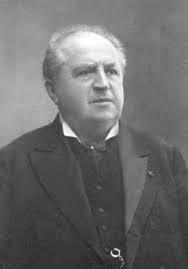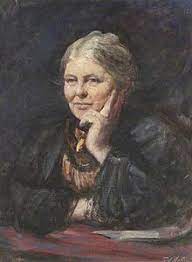Elaine Cooper is involved in education in Cambridge, is a KLC Fellow and a member of its Interdisciplinary Group.


Consider… an outspoken Dutch theologian, politician and polymath and a gentle, quietly-spoken English spinster writing on Christian education – what could they have in common? As it turns out quite a lot, besides inhabiting roughly the same period in the 19th century, now being commemorated by their centennials in 2020 (Kuyper) and 2023 (Mason).
Both had ambitious views for making a difference in society. Both understood and tackled secular modernism and naturalism with intellectual insight and energy, writing critiques within their respective contexts, positing instead, the necessity of a Christian worldview. In Kuyper’s case, he became, amongst many things, prime minister of Holland for a term, and in Mason’s case, putting forward a Philosophy and Practice of Education which gained highly respectful tributes at the end of her life.
Each wrote extensively about education, stressing the primary responsibility and freedom of parents to choose their children’s education. They understood the importance of vital links between home and school not only for individuals, communities and the workplace, but for the whole nation. Kuyper wrote persuasively about “spheres of sovereignty” – that the government, family, arts, economics, education etc., each has its own distinct responsibilities and authority. Kuyper helped establish an educational pluralism in the Netherlands at a critical point in its history to protect Christian culture. Mason, a committed Anglican evangelical, in response to the encroaching secularism, was envisioned by the concept of a “righteous nation” and believed that the established church in Britain might be a means of accomplishing that goal.
Kuyper was not only deeply interested in literature, sharing this love with Mason, but was actually converted through reading The Heir of Redclyffe by Charlotte Yonge. Mason for her part, believed that good literature functioned as a spiritual and intellectual power between writer and reader, and as in this case, was actually borne out in Kuyper’s own experience!
Both understood in a profound way that the centre of the Christian life is a living relationship with God himself through Christ Jesus and the Holy Spirit – that every part of human life exists equally and directly “before the face of God” – we live our lives in their entirety coram Deo. This illumination enabled both to stress emphatically that no division was therefore possible between the sacred and the secular in life, including education. Kuyper used “palingenesis” as a precise word to convey the richness in understanding the parallel renewing of the individual as well as that of creation.
Concern for the education of the poor and disadvantaged also emerges in their writings. Mason was inspired primarily by her Christian commitments, and also by Comenius whose dictum “All Knowledge for All People” provided the challenging summons put forward by her into late Victorian British educational circles through booklets entitled A Liberal Education for All and The Basis of National Strength. However, education for all classes was a dangerous idea… Kuyper too was concerned that education ought not to remain a middle-class privilege, but ought to be a preferential option for the poor, especially when many poor people were Christian. Finally, both understood that biblical truth provided the only plausible foundation for a coherent and unified understanding of the world and the tragedy of the human condition.
The Kirby Laing Centre for Public Theology in Cambridge. Charity registered in England and Wales. Charity Number: 1191741
Kirby Laing Centre, The New Mill House, Unit 1, Chesterton Mill, French’s Road, Cambridge, CB4 3NP
© 2022 The Kirby Laing Centre for Public Theology in Cambridge